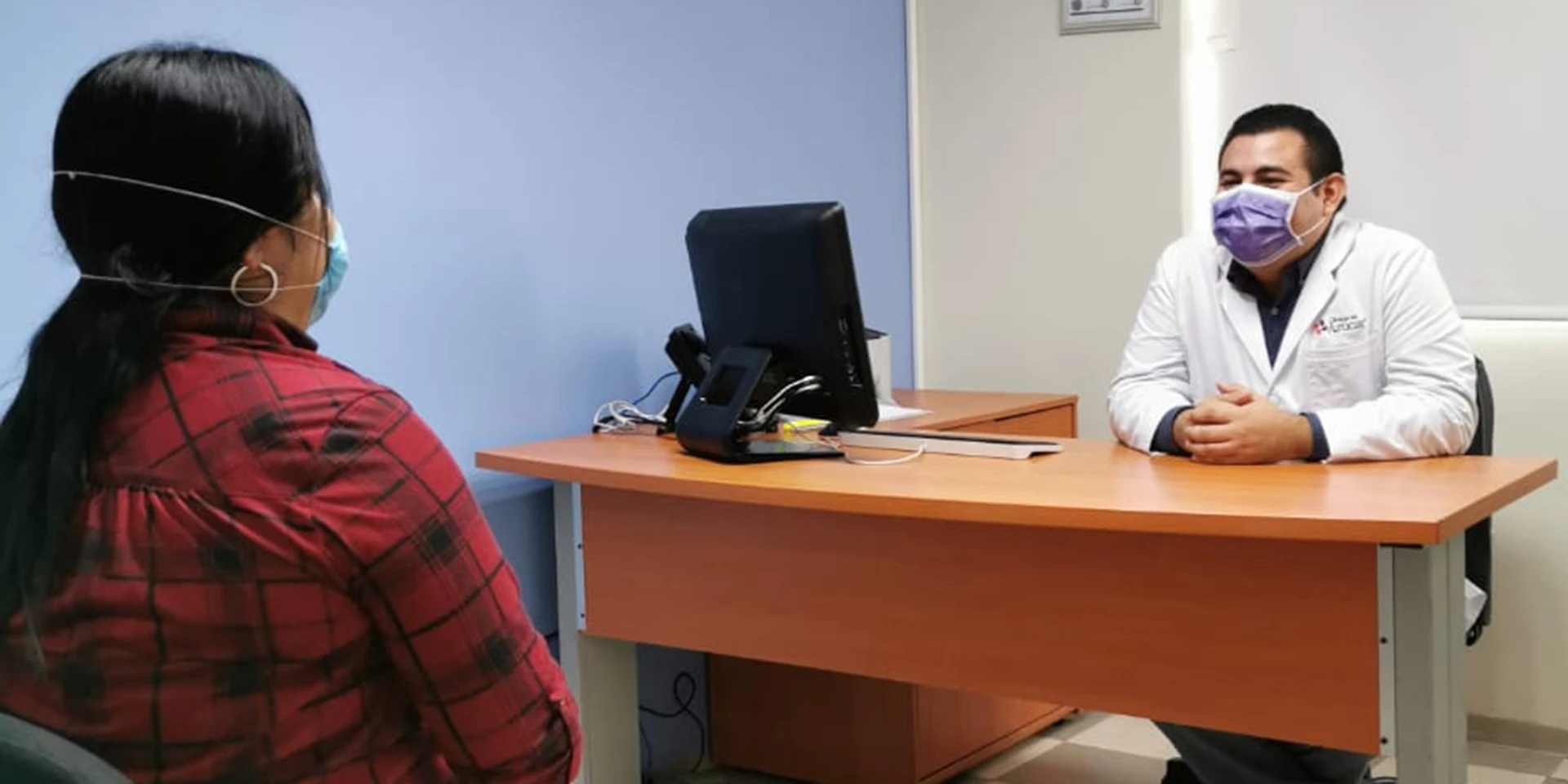By Kelly Alderson and Gayle Young
When Teresa de Jesús Monsiváis of Monterrey, Mexico, heard on television that diabetes was a risk factor for COVID-19 complications, she knew it was time to prioritize her health. The 45-year-old had long suspected she was diabetic, but never sought testing or treatment.
So first thing Monday morning, Monsiváis walked into a private diabetes healthcare facility called Clínicas del Azúcar.
“They did a blood test and confirmed it was high,” she said. “The next day I came back for consultation.”
The COVID-19 crisis has created an unexpected 40 percent surge in new clients for Clínicas del Azúcar, which operates a chain of specialized clinics that solely treat diabetes in Mexico—where an estimated 14 million people have been diagnosed as diabetic and another 40 million are believed to have the disease without realizing it. Diabetes is linked to more than 70,000 deaths a year and consistently ranks as one of the country’s leading causes of mortality and disability.
Having served more than 100,000 patients since it was launched 2011, the aptly-named Clínicas del Azúcar, which translates to “Sugar Clinics,” is providing comprehensive services to diabetic patients in a one-stop shop, at affordable prices.
Nurse Libia Ramirez takes a patient’s temperature at the Clinicas del Azucar in Guadalupe, April 6, 2020.
“New patients are coming in because they’re worried their diabetes is not controlled and concerned about the risk that poses,” said Founder and CEO Javier Lozano. He believes COVID-19 has raised awareness about diabetes and that more people will want to be tested and treated, when they feel safe leaving their homes. “We estimate the percentage of new patients will be even higher when people come out of quarantine.”
The unexpected increase in patients—along with the need to keep clients and staff safe from infection—required Clínicas del Azúcar to make fundamental changes in operations overnight. While it opened its 16th clinic on schedule in Ciudad Juárez at the start of the pandemic, the company simultaneously launched tele-doc services. “We are ramping up investment in our digital strategy,” said Miguel Garza, Director of Business Development.
About 30 percent of Clínicas del Azúcar’s 250 employees now work from home. They are calling every one of the company’s 15,000 subscribers to ensure they are aware of COVID-19 risk factors. Patients are patched through to doctors, clinicians and nutritionists for telephone consultations as needed. The company has even expanded its tele-doc psychological counselling services for sheltered clients battling anxiety, loneliness, and depression.
With assistance from IFC, the company is racing to launch an app within the next few months that will help clients monitor their blood sugar levels, manage medications, and learn about nutrition and lifestyle changes that can improve their health. The platform uses an algorithm to identify the best treatment options for each client and optimizes cost savings as well.
Meanwhile, patients who visit the company’s clinics in-person for blood work are greeted at the door by technicians, who take their temperatures and check for signs of illness. Chairs in the waiting area have been placed six feet apart, while staff wear protective masks and gowns.
Clínicas del Azúcar is the largest private provider for diabetes care in Mexico and its one-stop shop business model has reduced out-of-pocket costs for diabetes for its patients from $1,000 to $250 a year. The COVID-19 crisis may spur others to invest in preventative care globally, saving money and lives.
Clínicas de Azúcar is going a step further during the COVID-19 crisis—deferring payments and providing discounts so services can reach patients who need them most.
“The first thing we want to do is make sure they will not lose their care, especially during this critical time,” said Lozano of the emergency payment policy.
The balance between cost and risk is exactly what led Joel Pérez Gutiérrez, 55, of Ciudad Juárez, to Clínicas del Azúcar when he, too, learned that diabetes made him more vulnerable to the global coronavirus pandemic. For six years he has been trying to manage the disease on his own because he lacks health insurance.
“Going there has been one of the wisest decisions of my life,” he said. “When my diabetes is cared for and well treated, I feel safe,”—a precious commodity during a global pandemic.
Published in April 2020
